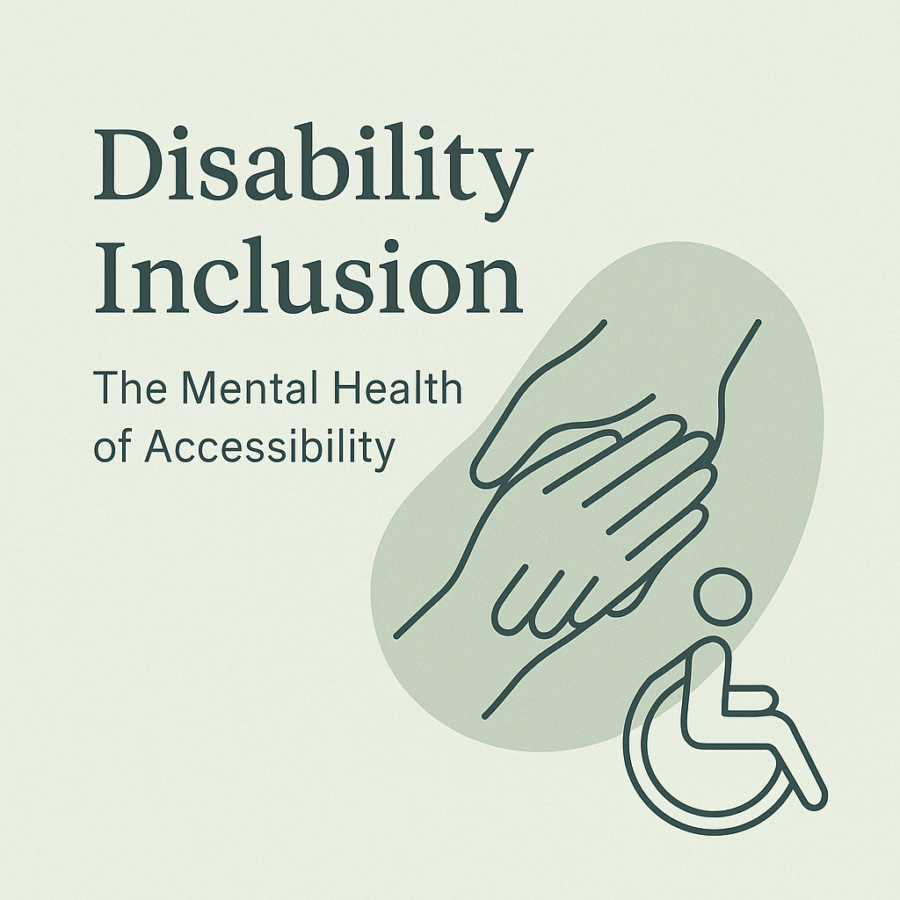Disability Inclusion: The Mental Health of Accessibility
October is National Disability Employment Awareness Month (NDEAM)—a time to highlight the contributions of workers with disabilities and the importance of inclusive employment practices.
At TheraHeal, we know that inclusion extends far beyond hiring practices. True inclusion means building systems that support the mental and emotional wellbeing of individuals living with disabilities—not just checking boxes or making accommodations reactively.
This month, we’re shining a light on the mental health intersections of disability, employment, and access to care.
Accessibility is not a courtesy—it’s a cornerstone of mental health equity.
A Brief History of NDEAM
National Disability Employment Awareness Month began in 1945 as a week-long campaign promoting job opportunities for people with physical disabilities.
Over time, it evolved to include all types of disabilities—visible and invisible, physical and mental—and was expanded to a full month in 1988.
Each year, the U.S. Department of Labor’s Office of Disability Employment Policy (ODEP) leads efforts to promote workplace inclusion and highlight ongoing barriers.
While the campaign focuses on employment, its ripple effects stretch into mental health, quality of life, and self-worth.
Mental Health Matters for People with Disabilities
Living with a disability can come with increased mental health challenges due to:
- Systemic barriers (inaccessible infrastructure, healthcare disparities)
- Social stigma or ableist attitudes
- Isolation or lack of peer/community connection
- Underemployment or job discrimination
- Medical trauma and chronic stress
The emotional toll of being excluded—or included only conditionally—can lead to anxiety, depression, PTSD, and low self-esteem.
At TheraHeal, we affirm that disability is not a flaw, but a facet of identity—and everyone deserves support that honors their lived experience.
People with disabilities are nearly twice as likely to experience depression or anxiety, often due to systemic barriers rather than their condition itself.
Accessibility in Mental Health Services
We’re working toward greater accessibility in therapy itself. That means:
- Offering telehealth for clients with mobility, sensory, or energy limitations
- Designing neurodivergent-affirming sessions for ADHD, autism, or learning disabilities
- Collaborating on custom communication methods (like AAC or ASL interpreters, if needed)
- Advocating for insurance navigation support and reduced barriers to entry
We’re also always learning—especially from our clients. Inclusion is an ongoing practice, not a destination.
How Workplaces Can Do Better
Want to make your organization more supportive? Here are a few places to start:
- Implement universal design for physical and digital spaces
- Offer flexible work structures (remote options, adjusted hours, etc.)
- Normalize mental health days and burnout prevention
- Listen to employees with lived experience—and pay them for their consulting
- Review job descriptions and hiring practices for ableist language or assumptions
Resources to Explore
- NDEAM Campaign Site – U.S. Department of Labor
- Job Accommodation Network (JAN) — Guidance on workplace accommodations
- Rooted in Rights — Disability advocacy through digital storytelling
- Autistic Self Advocacy Network (ASAN) — Neurodiversity and inclusion
- National Council on Independent Living (NCIL) — Disability-led organization promoting access and equity
You Belong Here
Whether you’re navigating a visible disability, chronic illness, or neurodivergent identity—your mental health matters. And it deserves care that meets you where you are.
At TheraHeal, we stand in solidarity with our disabled clients and community members, and we’re committed to doing better by listening, learning, and showing up.
Let’s continue building a world where accessibility and mental health are not separate conversations—but part of the same path to equity.
Ready to take the next step?
Our therapists provide accessible, inclusive care that meets you where you are—virtually or in-person. Let’s make mental health more reachable for everyone.

